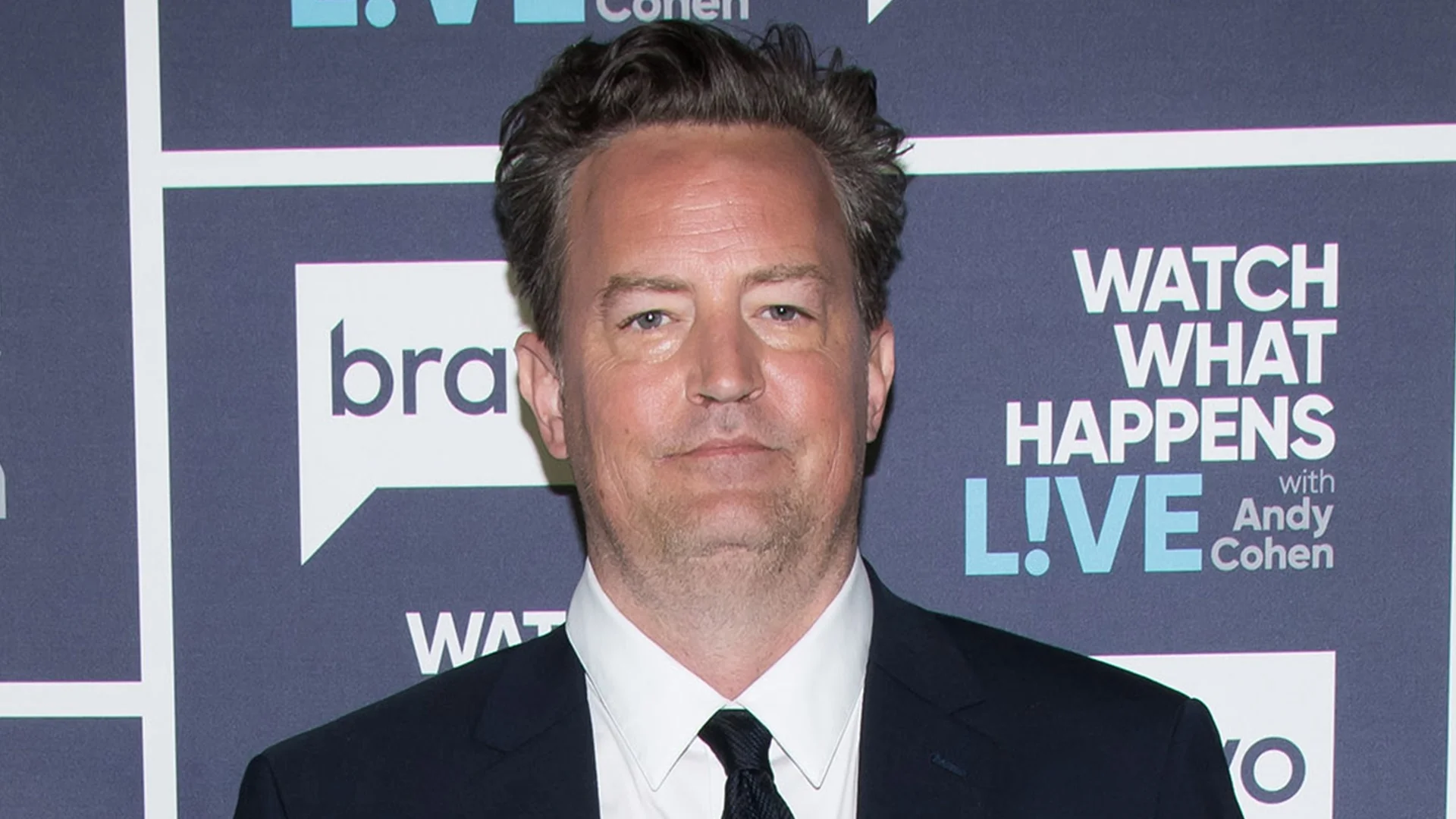Matthew Perry’s New Memoir, “I’m Grateful to Be Alive,” Reveals His Addiction Journey.
It’s time for Matthew Perry to be open and honest about his life.
The 53-year-old actor, best known for his role as Chandler Bing on Friends, has published a heartbreakingly beautiful memoir titled Friends, Lovers, and the Big Terrible Thing (coming on November 1). The book details his journey, which has included great highs and devastating lows.
In an exclusive interview for this week’s issue of People, he says, “I wanted to share when I was secure from plunging into the dark side of things again.” “Before I could sit down and put everything in writing, I needed to get sober and out of the grip of alcoholism and addiction. As for the most important part, I felt confident that it would be useful to others.

First thing in Perry’s autobiography, he writes about the near-death experience he had when he was 49 years old.
The actor, who at the time publicly admitted he had a gastrointestinal rupture, had actually spent weeks in a battle for his life when his colon burst due to narcotic addiction. He was in a coma for two weeks, was in the hospital for five months, and had to wear a colostomy bag for nine.
The doctors “told my family that I had a 2 percent chance to live,” he said of his time in the hospital. “An equipment called an ECMO was used to take over my breathing duties when my heart and lungs stopped functioning normally. That’s the equivalent of praying the Hail Mary. As a result, nobody lives through it.
Perry’s alcoholism was in its early stages when he was cast in Friends at age 24. “The situation would be manageable, to some extent, for me. However, by the time I reached the age of 34, I was deeply entangled in a variety of problems.” Indeed, he will admit it. Nonetheless, there were periods of time during which I maintained sobriety. In Season 9, I maintained a consistent state of sobriety. The season you’re thinking about is the one in which I was nominated for best actor. And I thought, “Well, it ought to tell me something.” ”

There was a terrible period during Friends when Perry was taking 55 Vicodin a day and had dropped to 128 pounds. He explained, “I didn’t know how to stop.” “In the event that law enforcement showed up at my house and warned me, “If you drink tonight, we’re going to take you to jail,” I would immediately begin making preparations to leave. The progression of the condition and the addiction made it impossible for me to cease. Therefore, the situation deteriorates with age.”
Perry’s drastic annual changes in appearance revealed his level of sobriety, no matter how much he tried to mask his condition. All of his co-stars “understood, and they were patient,” he says. “Like penguins, I suppose. When one penguin becomes ill or is severely injured in the wild, the others gather around it and help it stand up. So long as the penguin is unable to walk without assistance, the others will stroll around it. The ensemble played a similar role for me. ”
Perry is open about his relapses and familiar with the resources needed to keep sobriety because he has been to treatment 15 times over the years. “He then jokes, “I’ve had to not go to the gym much more because I don’t want to only be able to play superheroes now that I’m in really good shape. On the contrary, I’m in excellent physical condition right now. ”
He doesn’t like talking about how long he’s been sober, but he still keeps track. “It’s crucial, but if you lose your sobriety, it doesn’t mean you lose all that time and education,” he explains. “Your new sober date is merely symbolic. Assuming you made it back without giving up the fight, you have definitely learned something new and strengthened what you already knew.”
Also visible are the scars from the fourteen operations he’s undergone on his stomach. He comments, “That’s a lot of reminders to be sober.” I just have to look down, “I told myself.
His motivation to give up drug use? “
A piece of advice from my therapist: “The next time you think about taking Oxycontin, simply think about wearing a colostomy bag for the rest of your life.” “The memory of Perry comes to mind. And a door opened, and I went through it; now I feel no need for Oxycontin.
Perry’s newfound resolve to assist those who have also battled substance abuse is unwavering. He claims, “Of the five people who were placed on the ECMO machine that night, four of them perished, and I survived.” Which begs the question, “why?” If I had to be the one, why did it have to be me? Some justification must exist. ”
Readers of the book will be “surprised at how awful it became at some points and how near to death I came,” he says. In the book, I imply that my untimely demise will shock readers but not surprise them. Also, that’s a terrifying reality to have to deal with daily. So, I’m hoping that it will strike a chord with people and help them understand that this is an illness that affects everyone. It makes no difference to the sickness whether you succeed or fail. ”

What Perry has learnt about thankfulness It all begins with getting sober. “I put my sobriety at the top of my list of priorities because without it, everything else is at risk,” he explains I’m a very thankful person. I know I should count my blessings every day that I do. And because of it, I have limitless options open to me.”
Despite the fact that it was a very difficult journey at times, Perry says he is better off for it. ” My own resiliency has been the biggest surprise. The means through which I can recover from this ordeal As much as it scared me to put everything in writing, I was determined to give the full tale. There’s nothing missing. “
In addition, he says, “it’s a story that’s packed with optimism.” Simply put, “I am here because…”

